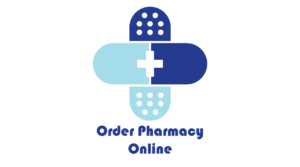While it has been shown that medical marijuana can help patients with certain debilitating conditions, there are some serious risks associated with using this drug. This article will discuss the risks and benefits associated with using this drug, and will discuss what you need to know before you start. We’ll also cover Cannabis withdrawal symptoms and its use for epilepsy. However, we should not forget that medical marijuana is not a cure-all. It can be harmful to those in recovery.
Cannabis
In addition to helping individuals stop their substance abuse, marijuana can also treat the physical dependence on drugs such as alcohol and opioids. Cannabinoids, or the chemical components of cannabis, interact with receptors in the central nervous system. They can replace or reduce the use of many types of drugs, including alcohol, opiates, amphetamines, benzodiazepines, and barbiturates.
Cannabidiol
Cannabidiol, the nonpsychotropic component of marijuana, is thought to inhibit heroin-seeking and attenuate discrete mesolimbic neuronal disturbances. It has been used as a drug addiction treatment for over a decade. But there are some questions about how effective it may be. Here are some answers to that question. Here’s a look at some of the research behind cannabidiol. You get more details about Cannabis delivery HRM, and buy online.
Cannabis withdrawal symptoms
Withdrawal symptoms from cannabis may not be recognized by the user because they are a symptom of an underlying disease. This withdrawal syndrome occurs when the brain and body do not receive the substance they are used to. If this happens to you, it may signal the onset of a cannabis use disorder. A doctor may prescribe cannabis for marijuana withdrawal to treat the symptoms of your addiction. If you are a cannabis user, your condition may be difficult to treat.
Cannabis treatment for epilepsy
The aetiology of treatment-resistant epilepsy remains unknown, but research suggests that it may be caused by multiple factors. Children with epilepsy are at risk of developing behavioural, cognitive, and psychosocial dysfunction, and a lack of effective treatments may lead to chronic problems for the patient and family. Parents of such children are often prepared to try alternative therapies, including cannabis. the use of artisanal, unregistered Weed delivery HRM products is becoming increasingly popular, raising public and governmental interest in this alternative form of treatment.
Cannabis treatment for opioid addiction
The opioid crisis has ravaged the Canada in recent years. Approximately 40,000 Americans died as a result of an opioid overdose in 2016. Nearly one million people used heroin. This epidemic has left a trail of devastation in its wake, but researchers are looking for ways to slow down its growth. One recent study released by the University of Kentucky College of Public Health found a relationship between legalization of cannabis and reduced rates of opioid addiction.

